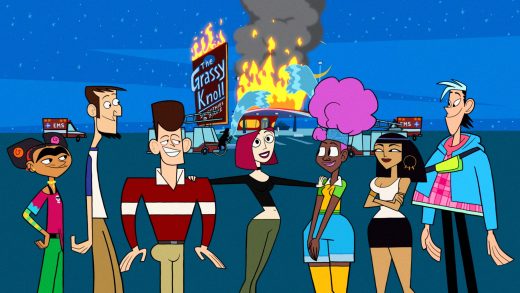By filing thousands of lawsuits over the past two years, Strike 3 Holdings swiftly became one of the most active copyright litigants in the U.S.
These cases target people whose Internet connections were allegedly used to download and share copyright infringing content via BitTorrent. In the case of Strike 3, that’s adult content.
As is common in these lawsuits, Strike 3 only knows the defendant by an IP-address. It then asks the courts to grant a subpoena, allowing it to ask Internet providers for the personal details of the alleged offenders so it can send a settlement request.
There has been some pushback against these requests in certain courts. In the Eastern District of New York, for example, U.S. Magistrate Judge James Orenstein slammed on the brakes recently
Judge Orenstein denied motions for expedited discovery in thirteen cases. This means that the adult video company can’t get a subpoena to identify the alleged pirates. While we have incidentally seen similar decisions, the motivation, in this case, is worth highlighting.

In his order, the Judge writes that allowing Strike 3 to obtain the identities of the account holders creates a risk.
Specifically, it will put Strike 3 “in a position to effectively coerce the identified subscribers into paying thousands of dollars to settle claims that may or may not have merit, so as to avoid either the cost of litigation or the embarrassment of being sued for using unlawful means to view adult material.”
Strike 3 was willing to give the Court assurances by accepting procedural safeguards on how the subpoenaed information can be used. However, considering the company’s history of avoiding judicial oversight, Judge Orenstein prefers not to issue any subpoenas at all.
And there are more factors at play here. The order mentions that, if subpoenas are issued, it’s likely that Strike 3 will not use the account holders’ details to litigate these cases in court. That’s also backed up by the information the rightsholder shared with the Court.
Since 2017, Strike 3 has filed 276 cases in the district, but zero have gone to trial.
Of the 143 cases that were resolved in the district, 49 resulted in a settlement and 94 were voluntarily dismissed. The latter number includes 50 cases where Strike 3 wasn’t confident that the defendant is the infringer. In other words, people who are likely wrongfully accused.

This means that in one-third of the resolved cases, Strike 3 has likely targeted the wrong person. This number is “alarmingly high,” according to the Magistrate Judge.
“Strike 3 acknowledges that in many cases, the ‘Doe’ it has sued – that is, the subscriber – will prove to be someone other than the person who engaged in the allegedly unlawful conduct the Complaint describes,” the order reads.
“And as it has now revealed in response to my inquiry, the proportion of such unprovable cases is alarmingly high,” Judge Orenstein adds.
This means that Strike 3 is listing many people as Doe defendants, while it knows that quite a few of these are not the actual infringers.
“It is thus apparent that Strike 3 is deliberately asserting claims in a scattershot fashion against a broad array of individuals simply because it is confident that many of them will be liable – even if almost as many of them are not,” the order reads.
This seems to contradict the requirement that copyright holders should have good faith belief in the merit of their claim. While that’s not a violation of the federal rules per se, the Judge sees it as a reason not to issue the subpoenas.
After all, it is clear that these type of lawsuits are also targeting innocent subscribers.
“While I do not suggest that suing three people because two of them probably committed a provable copyright violation is a technical violation of Rule 11, the certainty that such an approach will impose needless burdens on innocent individuals counsels against a finding of good cause to permit expedited discovery,” the order reads.
Strike 3 also argued that these type of lawsuits are needed to deter others from engaging in copyright infringement. However, the court waved away this argument as well.
Similarly, Judge Orenstein disagrees with Strike 3’s argument that it will be unable to enforce its copyrights if a subpoena is not granted. While this concern is valid, the Judge believes that these types of cases are not the answer, as they are plainly inefficient.
With the latter comment, the order references the work of Idaho Law Professor Annemarie Bridy, who previously published a paper explaining that litigation is not a scalable mechanism to deal with this type of copyright infringement.
In summary, the order delivers a devastating blow to Strike 3 and adds to the recent criticism of these types of lawsuits. If all judges ruled the same way, so-called copyright trolling practice would be finished. However, that’s not the case just yet.
—
A copy of the order, which dates back a few weeks and has mostly been flying under the radar, is available here (pdf).
Source: TF, for the latest info on copyright, file-sharing, torrent sites and more. We also have VPN reviews, discounts, offers and coupons.
Source : Judge: Number of ‘Unprovable’ Piracy Cases is Alarmingly High










